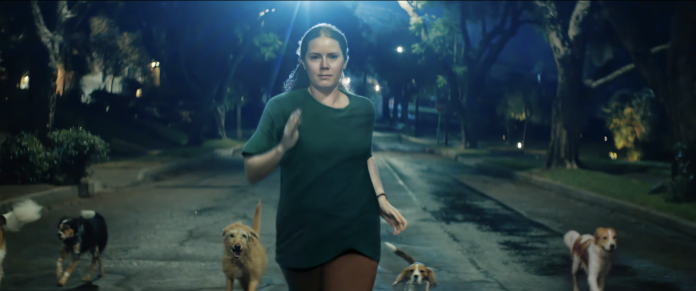Suburban housewives will always be a subject of fascination. As a group, they’re symbolic of aspirational modernity, of those who uphold and represent societal norms, the status quo, the Family, and the oppressive, insidious sexism that forces women into a box, because the problem with no name remains both stubbornly persistent and difficult to define.
What they are rarely allowed to be is themselves, with creators more often shaping them accordingly to embody whatever concept they’re looking to explore. But Nightbitch’s biggest accomplishment is how much Amy Adams gets to unsettle as a nameless member of the demographic who starts turning into a dog. And like much media centered around women, it’s an unintentional indicator of what has and hasn’t changed. Mothers may get to feel dissatisfied, but good ones generally don’t get to rage. The fact that that particular emotion is the movie’s main emotional thread is likely why Nightbitch has been squeezed into the horror genre, regardless of the uncomfortable fit.
And there’s noticeably a lot less wiggle room than there was for director Marielle Heller’s previous outings into messy femininity. The protagonists of The Diary of a Teenage Girl (2015) and Can You Ever Forgive Me? (2018) may have been in disarray, but neither was representative of the sacred American family. Adams is the mother of a cute little two-year-old boy, so even at its most touching, when she’s calling herself the worst mom ever at the slightest sign of anything shy of smiling perfection, things can’t get too dark or weird even after her canine transformation. And her well-meaning but clueless, and also nameless, husband has to get an arc that reassures viewers that this couple will stay and thrive together.
Yet there is a power in Nightbitch that can rise above its timidity. The beautifully deranged artistic career of the book’s heroine would be a near impossible sell onscreen, and if it’s almost tragic in how the movie cuts material involving the flaws of the other mothers in her orbit, there’s power, even awe, in the strength of women simply gathering and sharing unspoken, violent truths about motherhood and the dark humor many of them use to cope. If its legacy is ultimately that of a stepping stone for a later, more radically honest film, well, that’s on theme too. R, 98 min.
Limited release in theaters







